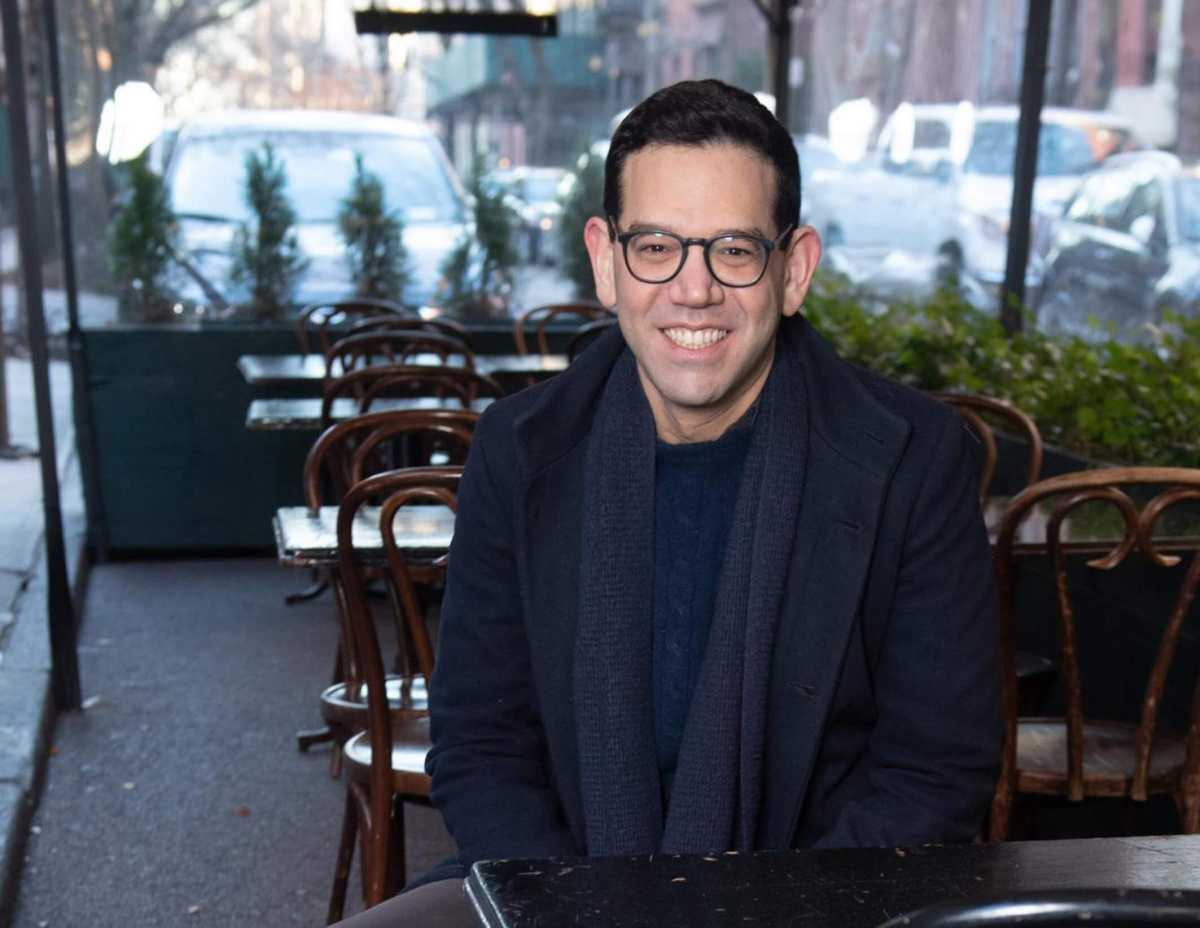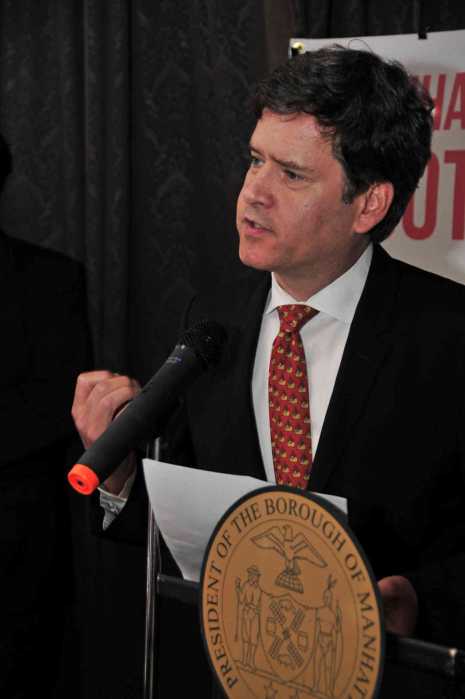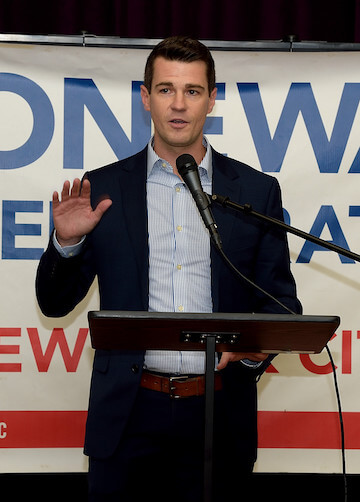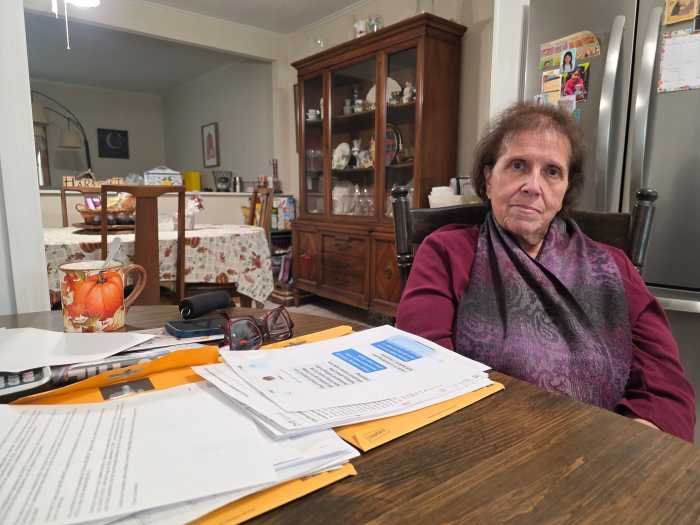In a Democratic primary contest shaping up as a test of which candidate can most persuasively claim the progressive mantle, Ryder Kessler, a tech entrepreneur who spent the past several years working in national Democratic politics, is taking on State Assemblymember Deborah Glick, a 32-year incumbent in the 66th District that encompasses Greenwich Village, Soho, Noho, and Tribeca.
Kessler, an out gay 2008 college graduate, faces off against the State Legislature’s first and longest-serving openly LGBTQ member, a pioneering record he made a point of praising in a recent interview with Gay City News.
At the same time, in noting that the district’s median age is 35, Kessler hinted at something of a generational challenge to Glick’s long tenure in Albany. Pointing out that the district supported Cynthia Nixon, with whom he is pictured on his campaign website, over incumbent Governor Andrew Cuomo in the 2018 Democratic primary, he said, “I am very much where the district is.”
Glick, who also spoke with Gay City News, pushed back against any effort to use her years of service against her.
“This is not something I’m just doing now,” she said. “I am proud of serving this community, which I have done exceptionally well, without any diminution of my enthusiasm.”
As is often the case in Democratic primaries in this city, there are many issues on which the two candidates largely agree, putting an onus on Kessler to sharpen the distinctions on those matters where they don’t see eye to eye — including decisions about the area’s streetscape as well as a recent Soho rezoning he said will finally increase affordable housing in the district.
Kessler — who was a co-creator of a digital product that allows for the tipping of service workers by customers paying with credit cards — worked on ballot protection in Maine in 2020 and during the critical early 2021 US Senate runoffs in Georgia. He has also served since 2019 on Manhattan Community Board 2.
One hot-button issue on which Kessler hoped to distinguish himself from Glick — the decriminalization of sex work — seems likely to fade in importance with the recent decision by the incumbent to endorse the full decriminalization stance the challenger also supports.
As advocates pressing for ending sex work criminal penalties — including many in the transgender community — stepped up efforts in Albany over the past few years, a policy divide emerged, with the most vocal proponents aiming to eliminate penalties on both buyers and sellers. As long as law enforcement is able to interfere in consensual sex work arrangements, they argue, sex work will remain largely underground and, so, continue to be dangerous. Others, including feminists such as the New York City chapter of the National Organization for Women (NOW), advocate ending the arrest of sex workers, but not the buyers of sex. Those opposed to full decriminalization warn it will weaken the fight against sex traffickers, an argument its supporters reject.
Until recently, Glick did not support full decriminalization, telling the Jim Owles Liberal Democratic Club, an LGBTQ group that supports Kessler, in January she was not a sponsor of the legislation and challenging the club’s characterization of the alternative as “dangerous.” Since that time, she has signed on to the full decriminalization bill put forward by her Manhattan colleague Dick Gottfried.
Glick’s shift in position is emblematic of fissures in feminist circles on a number of important issues. She faced criticism in the LGBTQ community for her resistance to legalizing gestational surrogacy contracts in New York, something sought by would-be gay parents, championed by her out gay Manhattan Senate colleague Brad Hoylman, and signed into law in 2020. Like some other Assembly feminists, Glick voiced concerns about the well-being of a surrogate paid to carry a baby to term.
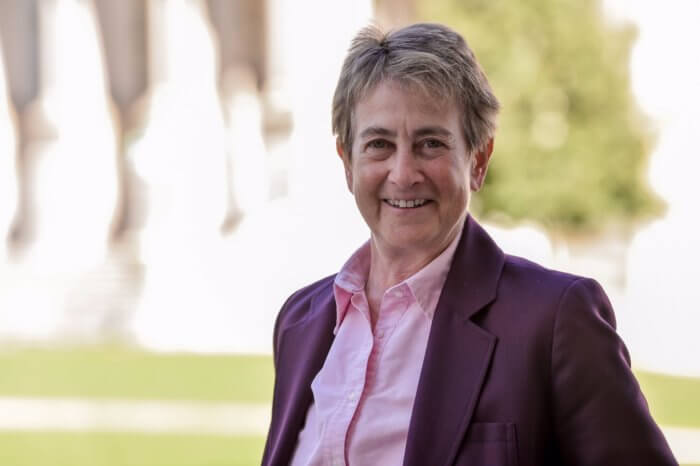
If the decriminalization question has been taken off the table, Kessler also takes strong aim at Glick over what he says is insufficient interest in expanding affordable housing in the district. Arguing that in the past decade only 100,000 units of housing have been created versus the city’s population growth of half a million — with most of those units sited in economically disadvantaged communities of color — he was a strong supporter of the recent rezoning of Soho, which he describes as one of the few initiatives to bring new affordable housing into more affluent, predominately white neighborhoods. Glick, in her opposition to the rezoning, he argues, was “advocating for more of the status quo.”
Glick acknowledged that many who disagreed with her posture on the rezoning claimed she was catering to wealthy Soho residents opposed to development in the historic area. But, she argued, Soho has many residents who are not wealthy, including artists — and, often, the surviving partners of artists — whose residences do not enjoy sufficient protection under the rezoning. Upzoning, she said, incentivizes the demolition of smaller, older buildings, with rezonings across the city in recent years misplacing more tenants than those served by new affordable units.
“So that model hasn’t worked,” Glick said, voicing disappointment that City Planning had not taken objections to the rezoning more seriously.
On the issue of streetscapes, Kessler is a proponent of expanding the network of protected bike lanes, but takes particular issue with Glick’s opposition to the street dining sheds that proliferated during the pandemic crisis.
“Manhattanites like outdoor dining,” he said, charging his opponent is more concerned about preserving parking space for cars, which he said 94 percent of borough residents don’t use to get to work.
In a February rally against the plan to make outdoor dining sheds permanent, Glick argued she is the candidate representing the wishes of district residents, who live upstairs from the sheds that critics charge create noise, draw rats, and block access for residential deliveries.
“We have to talk about equity. The only people who can eat at those sheds have money,” Glick said, according to thevillagesun.com. “They want to talk about equity — let’s talk about equity!”
On a host of other issues generally viewed as progressive goals — including enactment of Gottfried’s New York Health Act creating a single payer, universal access system and preservation of the bail reforms enacted in 2019 but now being challenged by Mayor Eric Adams and, more quietly, Governor Kathy Hochul — Glick and Kessler are sounding much the same notes.
One curious issue on which Kessler has chosen to draw distinctions is women’s reproductive health, an area in which Glick has long been a recognized leader. In 2019, a year and a half before Donald Trump locked in a 6-3 conservative majority on the Supreme Court with the appointment of Justice Amy Coney Barrett, Glick along with her Manhattan Senate colleague Liz Kruger succeeded in putting the protections of Roe v. Wade into state law. With a pending high court ruling on a new abortion curb in Mississippi widely predicted to limit the guarantee of abortion availability to just 15 weeks if not gut Roe completely, that move in Albany seems prescient.
Describing the codification of Roe in state law as “one of my proudest achievements,” Glick said she and Kruger “were told, ‘Why do we have to do this? There is no danger.’ We said, ‘Yes there is. Our abortion law was adopted pre-Roe and does not contain all its protections.’”
Kessler faulted Glick, however, on the issue of reproductive healthcare access, noting that the Higher Education Committee she chairs has not yet taken up a measure allowing women to receive birth control directly from pharmacists, without need for a doctor’s prescription. Glick said that the issue involves changes to the scope of practice allowed for pharmacists under state law, technicalities that would likely be resolved once the Legislature approves a new budget on April 1.
Kessler argues that since Democrats finally gained control of the State Senate in 2019, after years of Republican domination, it has been the lopsidedly Democratic Assembly that became the “chokepoint” slowing down movement on progressive goals.
That’s a position Glick dismissed out of hand.
“The Senate had 20 years of our progressive agenda to draw on,” she said. “What they worked on was an enormous backlog of Assembly efforts.” Adding she appreciates her Senate colleagues’ efforts, she said, “We’re happy that we have broken a logjam there.”
Glick stirred a social media outcry last fall when she tweeted about how “religious zealotry” blocks efforts to contain population growth that “has stressed the planet.” Kessler posted that tweet on his website, along with a response terming Glick’s posture as “eugenics.” Asked to explain that link, Kessler pointed to a 2016 City and State op ed in which she suggested reconsideration of whether the federal child tax credit should be extended for a family’s “fifth or ninth child.”
Glick, asked about the 2016 article, said that the revaluation of measures like tax credits regarding their impact on policy goals is unremarkable. Her larger point, she said, was to challenge both cultural attitudes and legal restrictions — including the Mississippi law before the Supreme Court — that aim to lock in “mandatory maternity.”
She also said, “Obviously somebody has done a lot of opposition research.”

